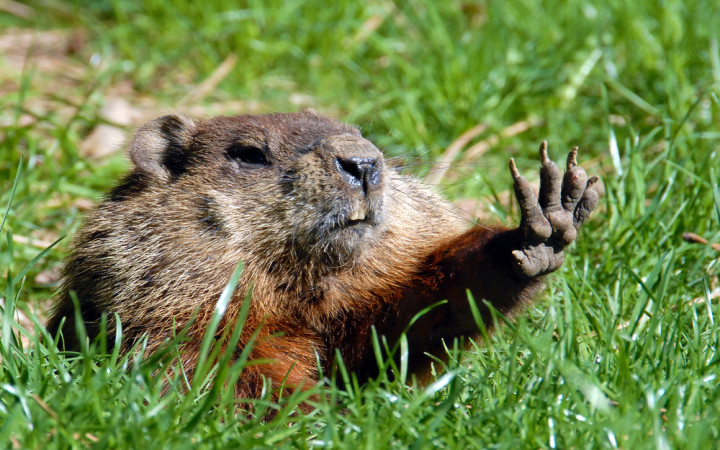Today’s Wonder of the Day was inspired by Aman. Aman Wonders, “What is a woodchuck and how much wood can it chuck?” Thanks for WONDERing with us, Aman!
Today's Wonder of the Day takes a closer look at an animal that's neither a hog nor a pig and doesn't chuck wood. What is it? The woodchuck, of course!
The woodchuck — whose scientific name is Marmota monax — is more commonly called by one of several other names, such as groundhog, whistle pig, or even land beaver. Woodchucks are rodents from the group of large ground squirrels called marmots.
So what's up with all the different names? Woodchucks live all over the United States. Because they can be found in so many different areas, they came to be known by unique names in different regions.
For example, some people call them whistle pigs. When woodchucks are threatened, they will squeal loudly. Their squeal sounds somewhat like a whistle. This warns other woodchucks of danger and may also scare off predators.
In those areas where they're known as woodchucks, it's not because they like to chuck wood. Native Americans had several different names for woodchucks: otchek (Cree), otchig (Ojibwa), and wuchak (Algonquian).
English settlers used the more familiar sounds of their own language to come up with a word that sounded like these Native American names. That's how “woodchuck" came about.
The name woodchuck is kind of funny, though. In fact, it gave rise to one of the more famous tongue twisters you're likely to come across:
How much wood would a woodchuck chuck, if a woodchuck could chuck wood?
A woodchuck would chuck all the wood he could, if a woodchuck could chuck wood!
A tongue twister is a sentence, phrase, or short rhyme that is difficult to say quickly or repeatedly because of alliteration. Alliteration is the repeated use of similar sounds. For example, try to say “whistle for the thistle sifter" several times as quickly as possible without stuttering or mispronouncing any words.
Although tongue twisters can be a fun way to play with words, they're also very useful for a serious purpose. Some doctors use tongue twisters to help people overcome speech disorders.




